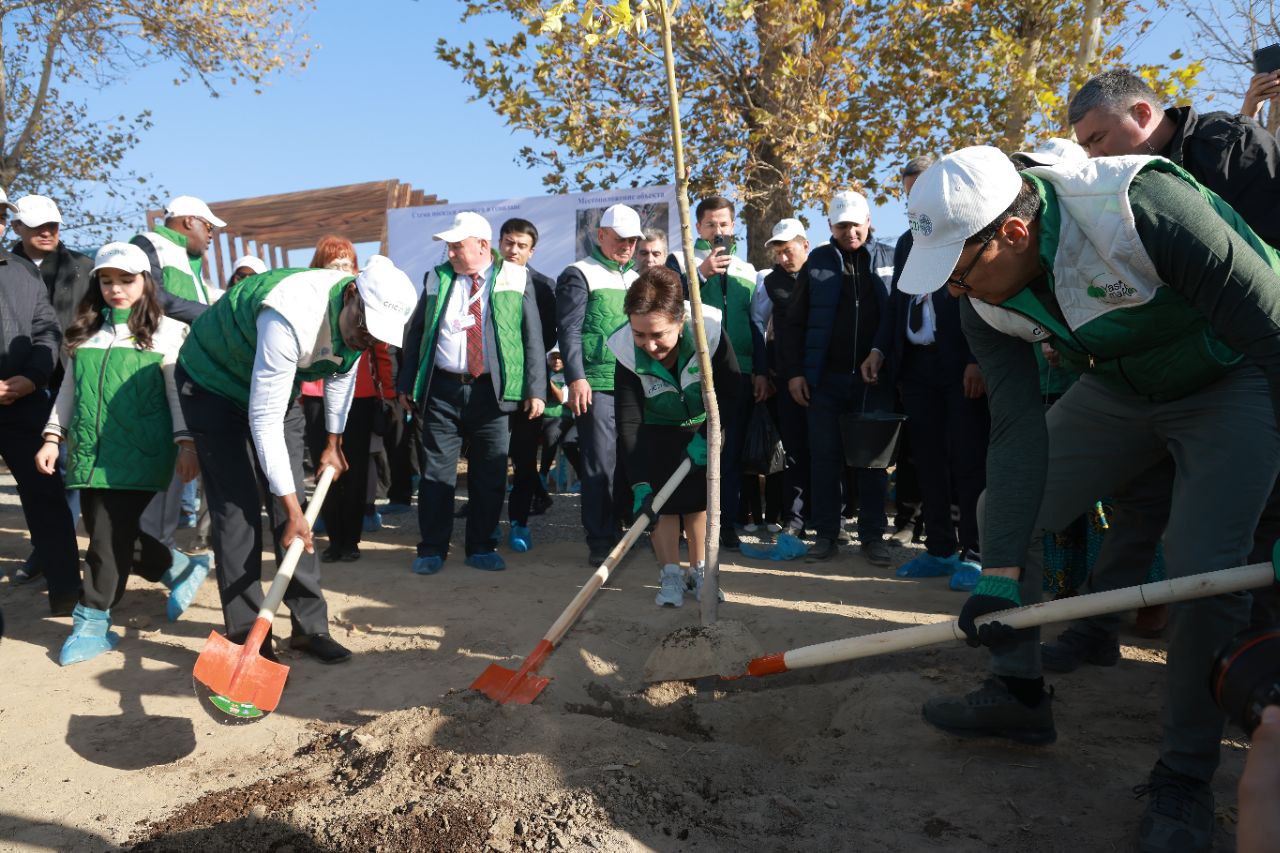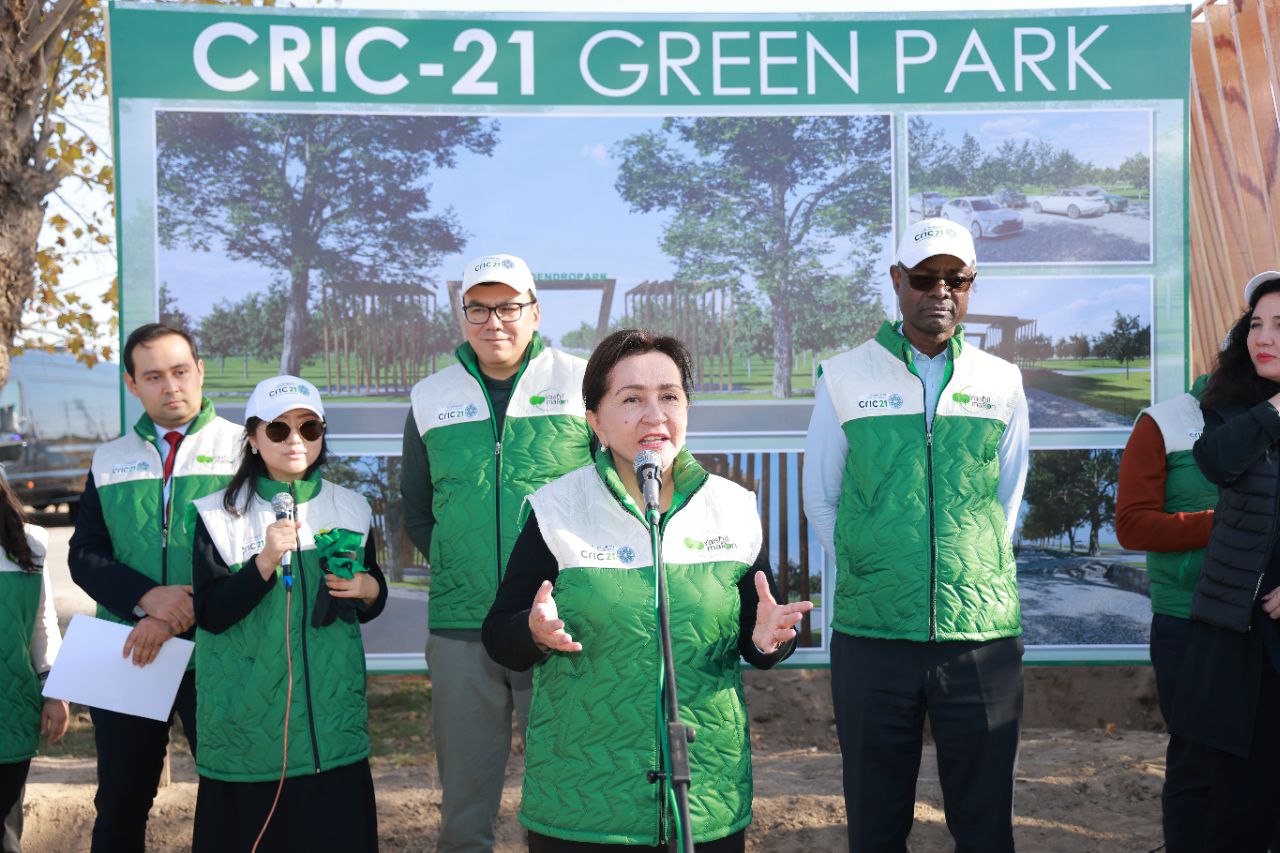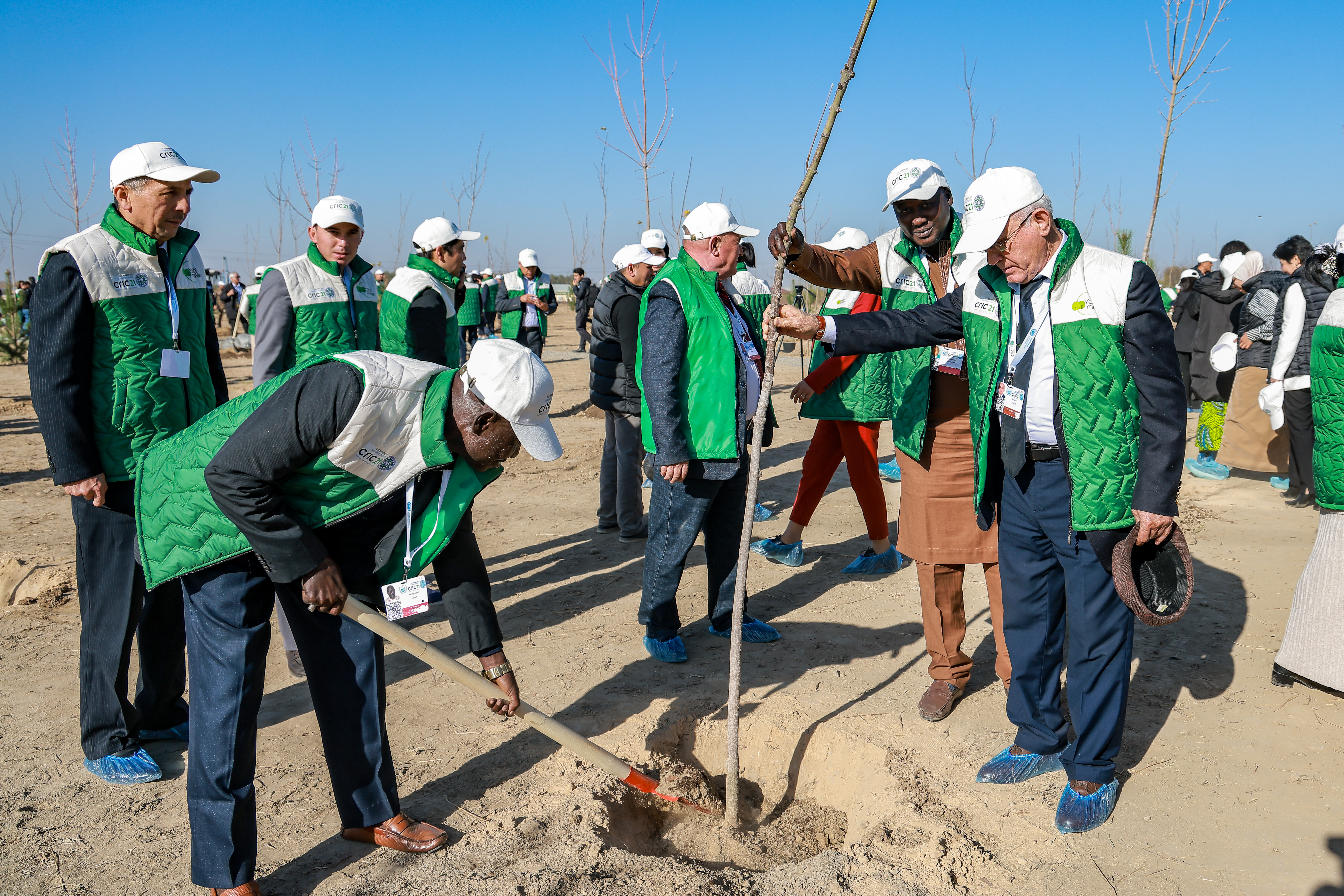
In Samarkand, as part of the 21st session of the Committee for the Review of the UN Convention to Combat Desertification (CRIC 21), a «Green Park CRIC-21»has been established.
The event was attended by the Deputy Secretary-General of the United Nations, Executive Secretary of the Convention to Combat Desertification and Drought, Mr. Ibrahim Thiaw, the Chairperson of the Senate of the Oliy Majlis of the Republic of Uzbekistan, Ms. Tanzila Narbaeva, the Minister of Ecology, Environmental Protection, and Climate Change, Aziz Abdukhakimov, as well as representatives of foreign delegations.



During the event, 1000 tree saplings were planted in the "Green Park CRIC-21".
For information, the park covers an area of 2.5 hectares and will be transformed into a public park for the residents and guests of the region.
It is worth noting that considering the material and immaterial cultural heritage of the Uzbek people, the relationship between society and nature is often represented as a symbol of a tree.


Today, the national project "Yashil Makon", initiated by the President of the Republic of Uzbekistan, Shavkat Mirziyoyev, has become a tradition. As part of this project, the Ministry of Ecology, Environmental Protection and Climate Change and the Forestry Agency under the Ministry are planting tree seedlings throughout the country.
In particular, over the course of 2 years since the start of the implementation of this project, more than 1,200 hectares of “green” gardens and public parks have been created in residential areas, along with over 1 million hectares of 'green' plantations along sidewalks.
This year, from October 25th to December 1st, the 'autumn tree planting season' has been announced, during which it is planned to plant 85 million trees.
In addition, 5 million trees will be planted in forest farms, a 'green belt' will be created around landfills and in areas surrounding major industrial enterprises, 20 million tree seedlings of poplar, mulberry, and grapevine shrubs will be planted along fields, 3.5 million seedlings will be planted in the territory of kindergartens, schools, universities, and hospitals, and a «green cover»is planned to be created on an area of 100,000 hectares of dried-up bottom of the Aral Sea".











